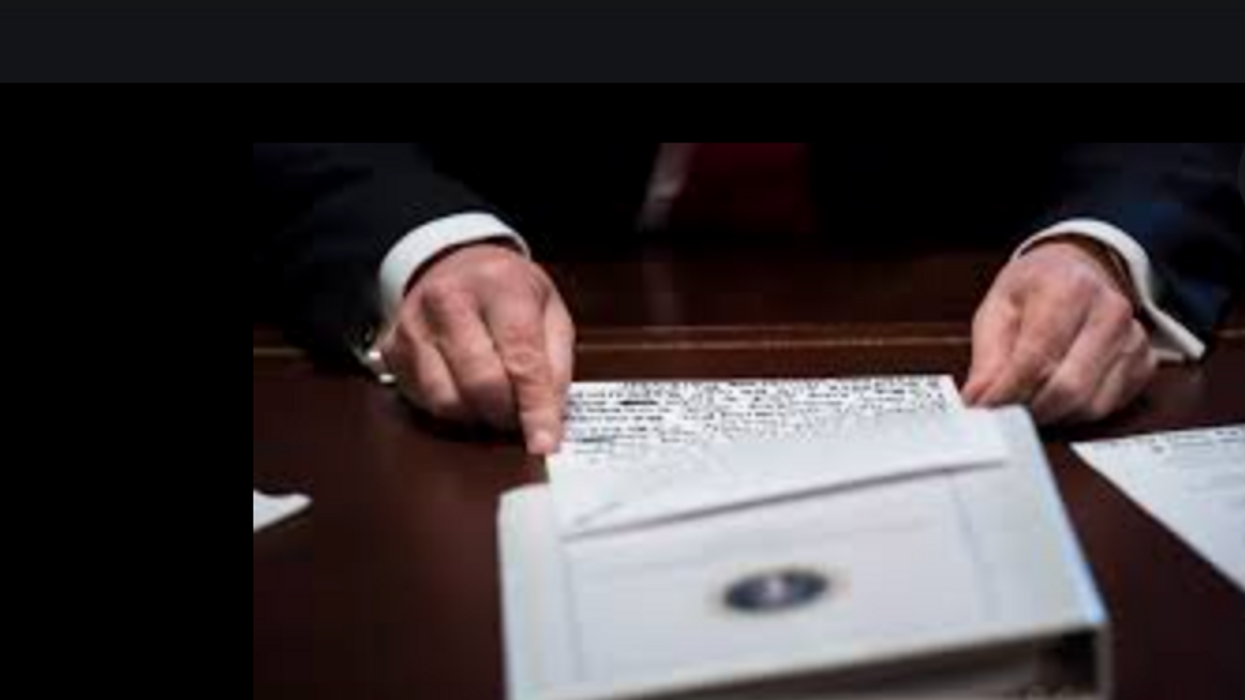Investigating Trump's White House Document Scandal, Without Fear Or Favor

The world-historical carnage inflicted by the singularly misreported story of the 2016 presidential election has been forever captured in a pithy, ironic cliche: "But her emails..."
While every politically aware American understands that baneful phrase, it gained a far deeper significance this week with revelations of how former President Donald J. Trump "mishandled" — in fact stole, flushed, ripped up and perhaps even ate — White House documents he didn't want archivists, historians, or criminal investigators to obtain. That includes some unknown but undoubtedly large volume of classified material, from "Confidential" to "Top Secret," including information pertinent to the investigation of his attempted coup and insurrection.
Trump's outraged bellowing about Hillary Clinton's alleged mishandling of her emails and other State Department documents was of course utter fakery. Subsequently, not only Trump but nearly everyone around him — notably Jared Kushner and Ivanka Trump, Steve Bannon and many others — regularly used unsecured private communication devices to discuss government business. "Lock her up!" was nothing but the usual Trumpian cynicism and should have been a predictive sign that he was projecting his own real and rampant misconduct.
The stunning truth about Trump's unlawful and bizarre treatment of presidential documents is just beginning to emerge in full, yet certain mainstream media outlets appear determined to minimize his potential criminal exposure. No less an authority than the New York Times informed its readers last week that "if Mr. Trump was found to have taken materials with him that were still classified at the time he left the White House, prosecuting him would be extremely difficult and it would pit the Justice Department against Mr. Trump at a time when Attorney General Merrick B. Garland is trying to depoliticize the department."
That statement appeared in a news article, although it clearly expressed the unsupported opinion of Times journalists, hiding behind a characterization of Garland's current state of mind regarding Trump — in short, punditry and soothsaying. And that report stands in stark contrast to the weight the Times put in the balance in 2016 — influencing the reporting of every major American news outlet — by obsessively insisting that Hillary Clinton was vulnerable to criminal prosecution. From that coverage, which pervaded American political media, innocent voters could only surmise that she had probably committed felonies and that her alleged misdeeds were the most important fact of the election.
So obsessive, in fact, was the paper's coverage that "in just six days, the New York Times ran as many cover stories about Hillary Clinton's emails as they did about all policy issues combined in the 69 days leading up to the election," according to analysis published by the Columbia Journalism Review. One editorial, published on May 26, 2016, after the State Department inspector general exonerated her, was headlined "Hillary Clinton, Drowning in Email," noting that "the email controversy" amplified by the Times was "likely to make her seem less personable to many voters."
Washington journalists may attempt to justify that distorted focus, much as they once sought to justify the Whitewater non-scandal two decades earlier, but it's still a disgrace. The judicious James Fallows, writing in The Atlantic, described the Times' coverage of Hillary's emails as "imbalanced and credulous" and "a legitimizing and enabling factor" in Trump's election.
The FBI and the Justice Department ultimately found no crimes committed by Secretary Clinton, despite FBI director James Comey's glaring and sanctimonious violations of Justice Department policy in bandying about claims of potential criminality, before pronouncing her innocent.
At this moment, we know no such thing about Trump or his gang — who appear to have both enabled and warned him many times about his violations of the Presidential Records Act as well as various classification statutes. We don't know what was in the dozen or more boxes with which he absconded from the White House, except that he appears to have taken classified material and that somehow the records of his telephone communications during the January 6 insurrection appear to have been deleted.
The National Archives and Records Administration has asked the Justice Department to investigate these matters. We must hope that Attorney General Merrick Garland will do his duty in enforcing the rule of law and pursue the facts wherever they may lead. No longer president, Trump is subject to criminal prosecution if he broke the law as president — and there is plenty of reason to believe he did so. Given his unbroken record of lies, subterfuges and brazen obstruction of justice — 10 instances of obstruction memorialized by Robert Mueller in his report on Russian influence on the 2016 election alone.
So, reporters and analysts should take a very long step back before offering any assumptions or predictions that Trump cannot be prosecuted or implying he did not commit crimes. The same people telling us that he can't be prosecuted once led us to expect that Hillary Clinton would be locked up.
Let the investigation proceed, and let justice be done.
To find out more about Joe Conason and read features by other Creators Syndicate writers and cartoonists, visit the Creators Syndicate website at www.creators.com.
- Trump Stolen Papers 'Clearly Marked Top Secret' - National Memo ›
- Trump Flushed Documents Down White House Toilet - National Memo ›
- How Trump Could Be Prosecuted For Document Scandal - National Memo ›
- Amid Trump Document Scandal, ‘But Her Emails’ Still Haunts DC Press - National Memo ›
- , Garland Vows Not To Sidestep ‘Political’ Cases Like Trump - National Memo ›
- US National Archives requests legal probe of Trump over handling ... ›
- 'Top Secret' documents are recovered from Trump's Mar-a-Lago ... ›
- Some Trump records taken to Mar-a-Lago clearly marked as ... ›
- Trump denies flushing documents down White House toilet ... ›
- Donald Trump's risk if he mishandled White House documents ... ›








